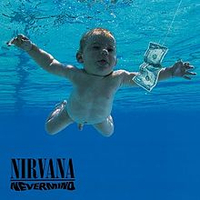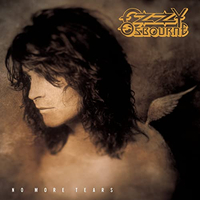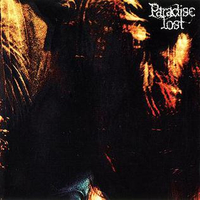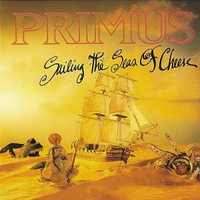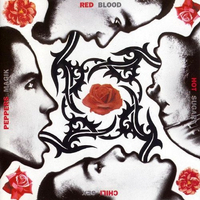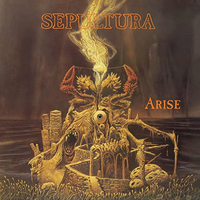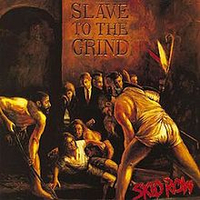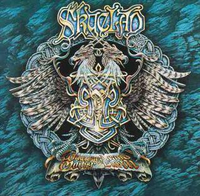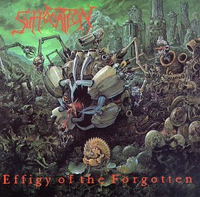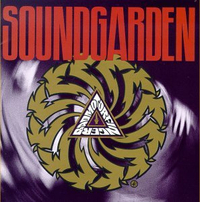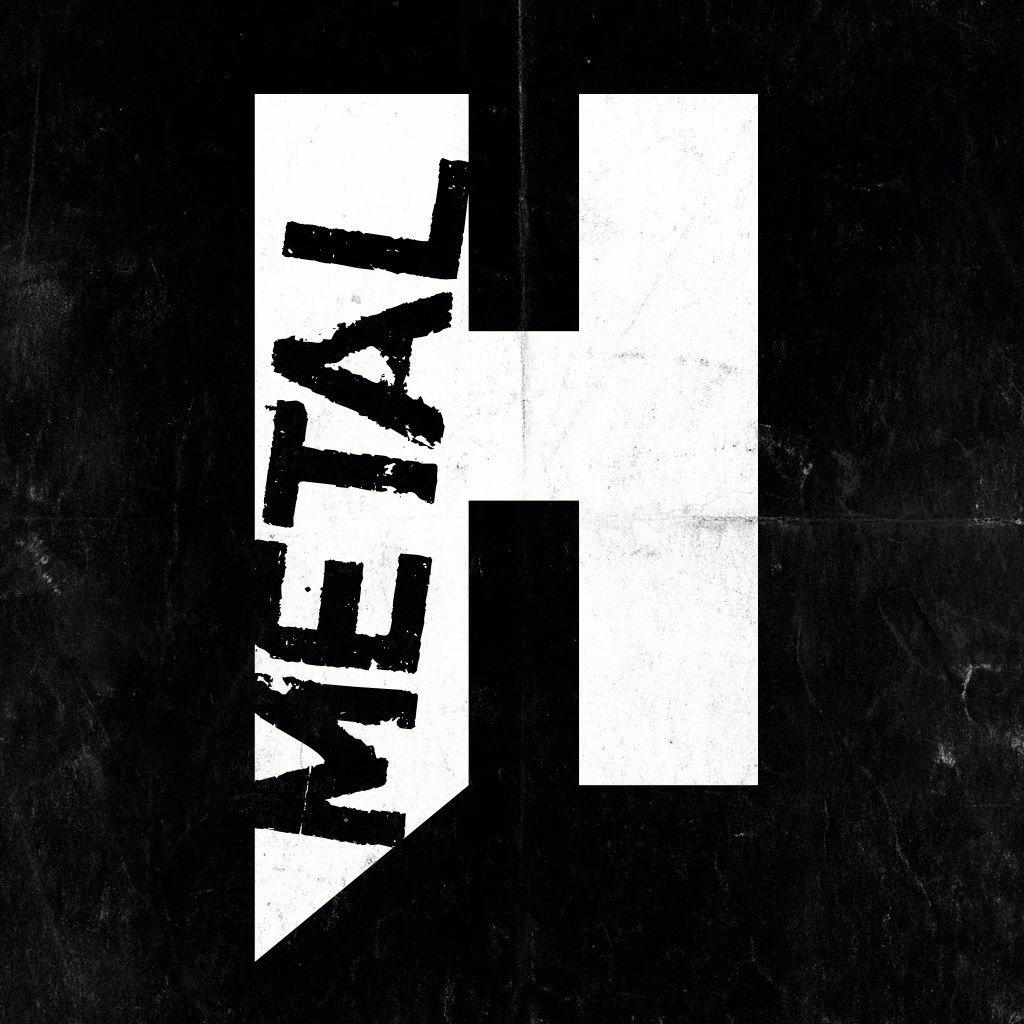Nirvana - Nevermind
“I want to sound heavy.” This was the sole instruction Kurt Cobain issued to producer Butch Vig on May 2, 1991, the day the producer sat down behind the Neve soundboard at Sound City Studios in Van Nuys, California to start the tape rolling for the recording of Nirvana’s second album, Nevermind.
You cannot overstate the influence Nirvana have had on the geography of music since the release of that album in 1991.
In the UK, the trio made alternative, heavy music dominate the mainstream for the first time since punk. In the US they did the same… for the first time ever. In one fell swoop metal, rock and indie were irrevocably altered – not entirely for the good – and the doors to the charts were smashed open for a legion of bands that would include The Offspring, Green Day and even Weezer.
Ozzy Osbourne - No More Tears
The biggest selling album of Ozzy Osbourne’s solo career is also his most adventurous.
Ending a run of three patchy releases, No More Tears had Ozzy – by now an obsessive gym bunny – sounding revitalised, and guitarist Zakk Wylde hitting peak form.
Pivotal to this album’s success was its monolithic title track, the best and most leftfield Ozzy song since Diary Of A Madman. Built around a throbbing bass riff written by ex-Alice In Chains man Mike Inez but rearranged and recorded by veteran Bob Daisley, it gave Ozzy relevance in the age of alternative rock, while Mama, I’m Coming Home (with lyrics by Lemmy) was a classic old-school ballad.
Paradise Lost – Gothic
Most of Paradise Lost were still in their teens when they released their debut album, Lost Paradise, and it showed. A callow hybrid of death and doom metal saddled with a budget production, it was a triumph of exuberance over expectation.
This follow-up showed what Paradise Lost were be capable of. As the name suggested, Gothic was richer and darker – the opening title track featured operatic female vocals and orchestral sections cribbed straight from the Celtic Frost playbook, while the crepuscular Eternal and Silent are shrouded in threatening gloom. Suddenly, extreme metal was looking towards the darkness.
Primus - Sailing The Seas Of Cheese
A masterpiece of barking-mad genre-bending and insidious wonky hooks, Primus’ second studio album was perfect for the uncertain but curious early 90s.
Boasting several of their best-loved songs and crowd-pleasers, not least the towering genius of Tommy The Cat and the rampaging Jerry Was A Racecar Driver, it’s a beautifully cohesive record full of brilliantly crafted songs that exude so much energy that the genuinely bizarre nature of Primus’ approach to rock’n’roll barely registers. From the angular strut of Here Come The Bastards through to the progressive hues of Fish On (Fisherman’s Chronicles, Chapter II), it’s wildly entertaining.
Red Hot Chili Peppers - Blood Sugar Sex Magik
The Red Hot Chili Peppers might have left rock behind long ago, but in 1992 this was on just about every metal fan’s turntable.
Enter producer/guru/star-maker Rick Rubin, whose work on the Chilis’ fifth album helped turn them into the megastars they’d always been in their heads. Recorded in a supposedly haunted mansion once owned by Harry Houdini, Blood Sugar Sex Magik exists where the spiritual meets the carnal.
Give It Away, Suck My Kiss and Sir Psycho Sexy take their livewire funk rock to its logical conclusion, but it’s Kiedis’s tender junkie’s mea culpa Under The Bridge that stands as the album’s outstanding moment.
Sepultura - Arise
An overlooked step on Max and co‘s journey to domination, suddenly Brazil showed it could punch its weight on the world stage.
The success of 1989 album Beneath The Remains had put Sepultura in a place where they didn’t have to worry about the small things and could just focus on playing; their follow-up album was testament to that.
Arise had it all: amazing breakdowns, squealing solos and the magic that made Sepultura such an enticing proposition in the early 90s. Exactly what heavy metal was meant to be.
Skid Row - Slave To The Grind
Glam metal may have turned Skid Row into platinum-plated superstars, but there was more to Sebastian Bach and the boys than side-stitched leather trousers and ozone-destroying barnets.
Their second album proved it: this was arena rock with a spine of steel, mixing massive-chorused bangers (Monkey Business and the title track), punky blasts (Riot Act) and grinding heaviness (Mudkicker), while still finding time to chuck in the odd power ballad.
Grunge would ultimately do to Skid Row what it did to so many of their peers, but not before Slave To The Grind had sold 2 million copies – making it the last blockbuster album of the MTV hard rock era.
Skyclad – The Wayward Sons Of Mother Earth
Martin Walkyier made his name as a member of Brit pagan-thrashers Sabbat, but it was the singer’s next group who remain one of the most important - if under-appreciated – bands of the post-thrash era. On their debut album, Skyclad dialled down the jagged assault a notch, adding fiddle and piccolo to the mix – most notably on The Widdershins Jig, a song that arguably gave birth to the entire folk metal genre. Skyclad would explore the folkier side of things on subsequent albums, but this remains the one that started it all.
Suffocation – Effigy Of The Forgotten
Effectively ground zero for the entire “brutal death metal” genre, Suffocation’s full-length debut stripped death metal down to bone, sinew and pulsing heart, delivering a distinctly thuggish, New York alternative to their peers’ frequently ornate and complex aesthetic. Meanwhile, Frank Mullen’s guttural growls on the seminal likes of Infecting The Crypts have never truly been topped.
Soundgarden - Badmotorfinger
The Grammy-nominated third album from Soundgarden was
a more collaborative affair than their previous record, not least because of new bass player Ben Shepherd.
The results were more cohesive and almost upbeat. Songs were tighter, arrangements a little more taut. Guitarist Kim Thayil said the bassist had made the album both faster and weirder. They even got ‘alternative’ radio play with the singles Outshined and Rusty Cage while Jesus Christ Pose was as controversial as it was acclaimed. Soundgarden crowned the album’s success by hopping on to GN’R’s Use Your Illusion tour.
They’d been early out of the grunge traps, but with Badmotorfinger, Soundgarden sealed their legend.
Metal Hammer Newsletter
Sign up below to get the latest from Metal Hammer, plus exclusive special offers, direct to your inbox!
